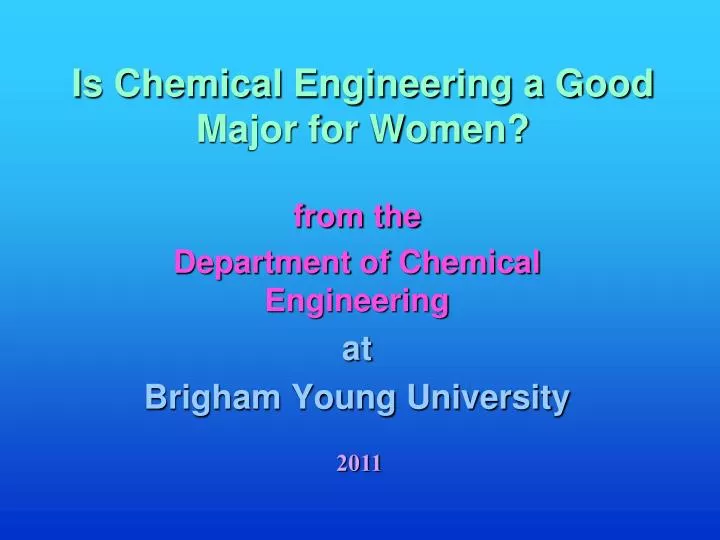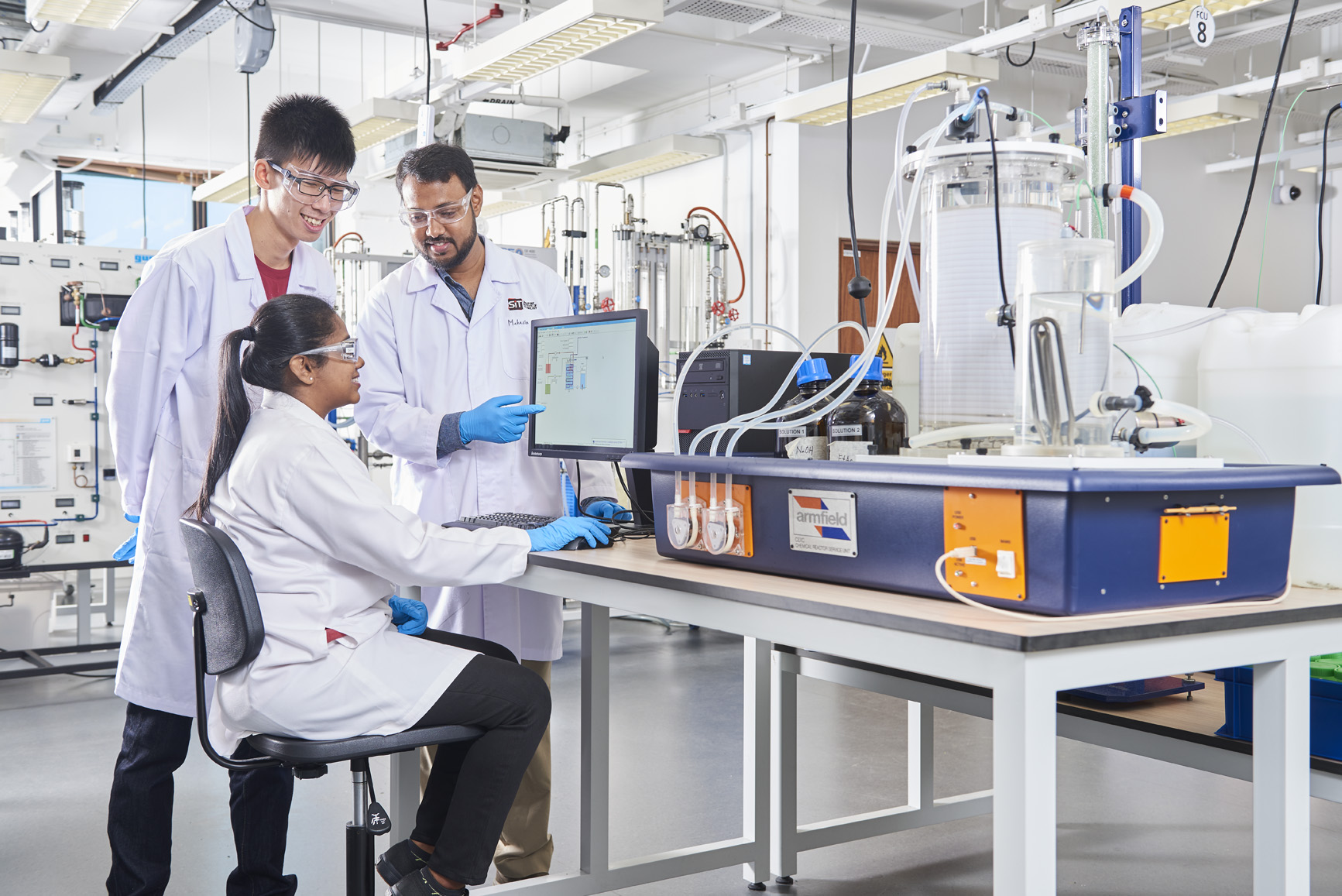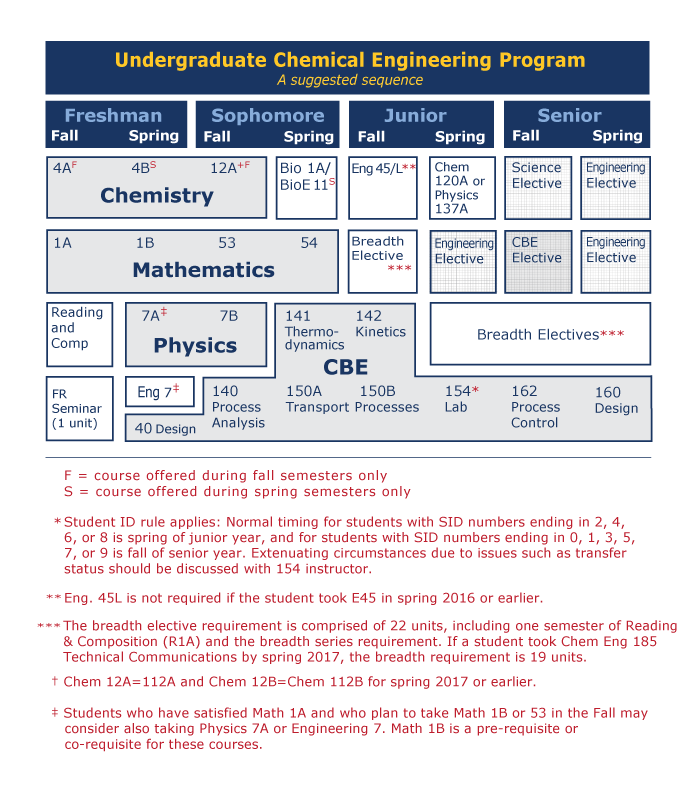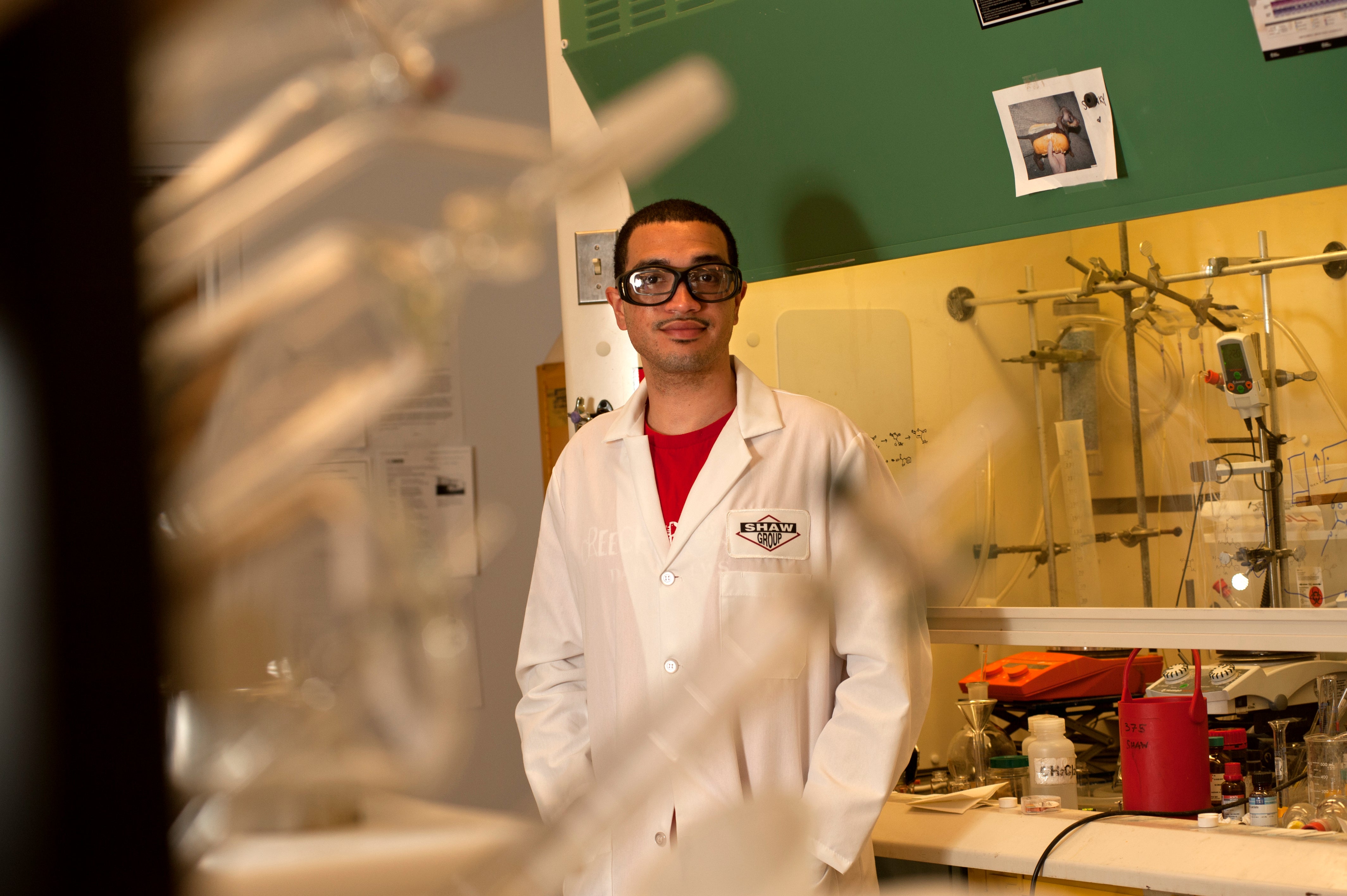In particular, chemical engineers design plant equipment and devise processes for manufacturing chemicals and products by applying principles and technology of chemistry, physics, and engineering. The average starting salary for a chemical engineering Bachelor's degree graduate is more than $65,000. Master of Science degree graduates typically make a starting salary of about $72,000. Better yet, recent doctoral graduates make a median salary of about $93,000 their first year. These starting salaries are based on a 2012 American Chemical Society survey.
Chemical engineers solve problems involved the use or production of chemicals and other projects by applying the principles of chemistry. For large-scale chemical manufacturing chemical engineers design equipment and processes, plan and test manufacturing methods and supervise production. They may work in a variety of industries beyond chemical manufacturing including those producing paper, clothing, food, electronics and energy.
Some chemical engineers work in business services, biotechnology and healthcare. Chemical engineers must understand all aspects of chemical manufacturing including the safety of workers and consumers and the environmental effects. The UK has had a shortage of chemical engineers for a while now so starting salaries are very good. In fact, across the UK, only doctors and dentists bettered the average starting salary for chemical engineering graduates, with an average starting salary of around £28,000. Key sectors for chemical engineers last year included the petrochemicals, food, nuclear, pharmaceuticals, materials and consultancy industries.
Their skills set also means that the finance industry likes graduates from these degrees, so there are options if you don't fancy engineering as a career. Most graduates take a longer course that leads to an MEng — which is what you need to take if you want to be a Chartered Engineer. Chemical engineering scope is quite huge with numerous career opportunities. Employment is projected to grow by six per cent from 2018 to 2028, about as fast as the average for all occupations.
Demand for chemical engineers is constantly increasing respective of services that largely demand products of various manufacturing industries. Chemical engineering career has a positive outlook with numerous opportunities. The chemical engineering market is expected to grow in the future.
As every product manufacturing industry hires candidates with chemical engineering degree. The chemical engineering scope is bright with the coming up opportunities in the industry. Such companies require candidates that fulfil chemical engineering requirements such as skilled individuals who can increase output with a minimum amount of input and improve the quality of materials.
Chemical engineering is one of the emerging careers that deal with designing and supervision of chemical reactions in an industry for the purpose of energy production or human development. In the current scenario, chemical engineering is significant as there is a global shift towards renewable resources such as hydroelectric and solar. These fields require innovation and development to make sure that these resources can meet our energy needs. The design equipment and processes for large-scale manufacturing and direct facility operations.
A Chemical Engineer is someone who uses analytical and mathematical skills with application of chemistry principles to develop various chemicals to improve the human living standards. The chemical engineering jobs are to structure and investigate processes for the creation of chemical compounds, fuels, nourishments, pharmaceuticals, and biologicals, just to give some examples. Chemical engineers are mostly employed by manufacturing plants that produce on a large scale. They are hired in order to give maximum quality output with minimum input, as well as to reduce cost. Chemical engineering jobs help various manufacturing organisations to reduce production costs to a great extent. Even though the engineering field as a whole will see average employment growth in the coming decade, chemical engineers are expected to see a decline in employment of 2 percent.
The best job opportunities will be found in service-providing industries. Chemical engineers should find work in the professional, scientific and technical services, especially for research in energy and nanotechnology and biotechnology, two field that are continuing to develop. To become a chemical engineer, you should gear up in high school by taking courses in science and math, particularly calculus.
From there, you will need a bachelor's degree in chemical engineering, preferably from a college that offers concentrations in your field of interest. If you're interested in management opportunities, a master's may be required. Chemical engineers apply chemistry to design and develop chemicals and biochemicals.
They develop the equipment and processes needed for chemical production and test chemicals to determine side effects. Chemical engineers are also involved with the design and production of new sources of energy, clothing, food, paper, and electronic goods such as televisions and radios. Chemical engineers apply their knowledge of physics, math, chemistry, and electrical and mechanical engineering to complete their work.
They can specialize in a specific field, for example, nanomaterials, or a specific chemistry principle, such as oxidation. Chemical engineers must be aware of how chemicals affect human health and the environment. Beyond the typical 4-year bachelor's degree, some chemical engineers choose to enroll in 2 or 4-year engineering technology programs. These hands-on programs focus on current issue in engineering principles and prepare students to work in production or practical design rather than jobs focusing on theory and science. Graduates of the 4-year programs often find similar work to chemical engineers with bachelor's degrees in chemical engineering. However, many don't qualify for licensure and employers view their skills as somewhere between an engineer and a technician.
Chemical engineering jobs majorly involve ensuring the safety of the products being manufactured. A chemical engineer develops safety procedures for those working with potentially dangerous chemicals. He or she has to perform daily tasks carefully and wear a protective suit to avoid any harm from chemicals. Career as a chemical engineer includes designing and planning the layout of equipment. A chemical engineer performs tests during the production process as well as does troubleshooting.
In a nutshell, a chemical engineer deals with both material as well as energy at the same time. A chemical engineer can be found working in several sectors such the manufacturing sector, nuclear sector, or petrochemical sector. They have varied roles in all of these sectors but chemical engineering is one of those disciplines which stretches across various industries. Bureau of Labor Statistics , chemical engineers of all varieties had a median annual salary of $104,910 as of 2018. Chemical engineers in pharmaceuticals had a median salary of $100,800 in 2018, while the mean salary was higher at $107,180.
Chemical engineers earning in the top 10% of the field made $169,770 or more a year. Ziprecruiter, a site that uses salaries offered in job ads, estimated the national average salary specifically for pharmaceutical engineers is $80,339. It is necessary for the candidates to clear the entrance examination for admission into the bachelor's degree programme, Entrance examinations differ from institute to institute. Once the candidate has joined college he or she has to study a mix of various Chemical Engineering subjects.
All of these Chemical Engineering subjects are learned through a series of classroom lectures, lab classes, and through field placements. Now a days, students can opt for Chemical Engineering degree online due to pandemic. Professors are providing classes of Chemical Engineering courses online. Students are not required to visit campuses to study Chemical Engineering course syllabus.
The Chemical Engineer education may vary depending on the Chemical Engineering courses and specialisations. There are numerous Iinstitutes offer Chemical Engineering courses in India. Candidates can opt for diploma in Chemical Engineering course or they can opt for Chemical Engineering degree courses. Chemical engineers are expected to have average job growth and good job opportunities overall.
For most entry-level jobs a bachelor's degree is required though some research positions a masters degree is needed. Continuing education is a must for chemical engineers due to always-changing technology. Chemical engineers earn some of the highest starting salaries of all college graduates. Chemical engineers design processes and products to solve problems and to supply vital materials for our technology-based society. Their work ranges from making clean energy, to producing more-affordable medicine, to streamlining semiconductor manufacturing - and even ways to improve food production and processing.
For instance, Payscale data places the national average chemical engineering salary at $73,306 per year. Indeed reports the average salary for chemical engineering jobs as $92,308 per year, as of 2019. According to the popular employment website Monster, the median salary for a master's degree in engineering and technology is $110,000. Degrees in electrical engineering, chemical engineering, mechanical engineering and civil engineering were all on the company's list of best paying master's degrees. After graduating from a chemistry engineering college or other other related specialisations, the biggest challenge they face is to get jobs with a chemical engineering degree in industry.
Individuals can get jobs with chemical engineering degree in oil and petroleum industry, textile industry, paint industry and numerous other related companies. An engineering, chemistry graduate with skills and knowledge can easily find a chemical engineering job. Establishing a career as a Chemical Engineer with physical disabilities can be quite difficult and it may often perceived as impossible. But as long as an individual has a perfectly functioning brain, he or she can acquire chemical engineering job opportunities.
Being a production engineer on-site might not be an ideal case scenario for someone with a physical disability but, one can always work in an engineering company as a process design engineer. Anyone with a strong determination can acquire great success in career as a chemical engineer. Chemical engineering jobs involve producing energy, electronics, food, clothing and paper. They work in research in life sciences, biotechnology, and business services.
Chemical engineers must be aware of all aspects of the manufacturing of chemicals, drugs, or other products. Bigger organisations such as the blue-chip companies abroad or navratna companies in India provide numerous opportunities of chemical engineering jobs. Texas A&M University - College Station landed the #2 spot in our 2021 rankings for highest paid chemical engineering school. Texas A&M College Station is a fairly large public school located in the medium-sized city of College Station. The average salary for a student who gets a bachelor's degree in chem eng from the school is $79,900.
The starting salary for a chemical engineer is one of the highest starting salaries across all occupation. A chemical engineer salary varies, depending on several factors including where in the country they work and the type of chemical engineering they do. The average pay for a chemical engineer also depends on experience. Chemical engineers must have a bachelor's degree in chemical engineering or a related field. Programs in chemical engineering usually take 4 years to complete and include classroom, laboratory, and field studies.
High school students interested in studying chemical engineering will benefit from taking science courses, such as chemistry, physics, and biology. They also should take math courses, including algebra, trigonometry, and calculus. By studying chemical engineering you'll have a range of employment opportunities. The highest 10 percent earned $132,980, the lowest 10 percent earned $56,090 and the middle 50 percent earned between $70,350 and $108,470. Chemical engineers typically enjoy one of the highest starting salaries of all college bachelor's degree graduates at $64,902 on average. In year one and two, students develop knowledge of the engineering fundamentals, science and design.
In year four, you will be able to specialise by choosing modules that suit your own interests and career path. You will also undertake a research and development project, giving you first-hand experience in cutting-edge research and advanced design practices. Additionally, these professionals monitor the production chain in chemical plants to ensure the safety and reliability of key measurements, and to troubleshoot problems that may arise. They are required to stay informed regarding the relevant regulations regarding chemical use, storage, and disposal, and to comply with environmental regulations. We have mentioned below the required skills that will support you in functioning throughout your career as a Chemical Engineer. These skills will provide you good employment opportunities of jobs with Chemical Engineering degree.
It's estimated that job prospects for chemical engineers will grow by 6% in the next decade. This growth is slower than usual, when compared to the average occupation. The need for chemical engineering occupations is closely tied to the need for manufacturing industries and the products they make.
The rate of employment for chemical engineers will be dependent on their ability to keep up with the rapid pace of change in technology. A bachelor's degree is required to start out as a chemical engineer. Undergraduate students of chemical engineering study and practice in classrooms, laboratories, and the field for 4 years. It offers opportunities to work management, out in the field and the lab. If you'd like to work as an engineer but don't think the field of chemical engineering is for you, other options exist. You can work in mechanical, nuclear, architectural and other engineering fields.
With a projected growth rate of 62% between 2010 and 2010, the field of biomedical engineering is a bright option. Employees in this field solve problems in biology and medicine to improve the quality of patient care. To enter this career, you'll need a bachelor's degree in bioengineering or an undergraduate degree in another field of engineering as well as a graduate degree in biomedical engineering. Chemical engineers usually need a bachelor's degree in engineering for entry-level work. On occasion, employers will hire college graduates with natural science degrees or mathematics degrees.
Most degrees are earned in either mechanical engineering, civil engineering, or electrical and electronics engineering. Then, with one engineering degree in hand, they can work in many specialties such as chemical engineering. This flexibility helps workers meet job demands and find the best employment prospects. While you can pursue a lucrative rewarding career as a chemical engineer with a bachelor's degree, an advanced degree paves the way to additional job opportunities.
In addition to qualifying for managerial positions, a master's degree provides a deeper understanding of chemical reactions, independent research methods, and advanced laboratory skills. To become a chemical engineer, you need a bachelor's degree in chemical engineering. You should also consider attending a program accredited by the Accreditation Board for Engineering and Technology . This accreditation lets employers and educators know that you have received a rigorous education and meet the quality standards of the profession.



























No comments:
Post a Comment
Note: Only a member of this blog may post a comment.